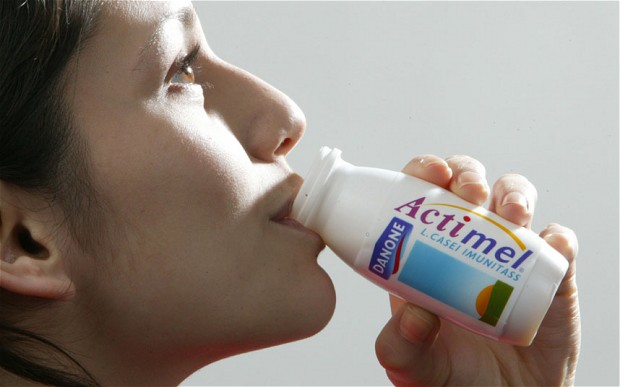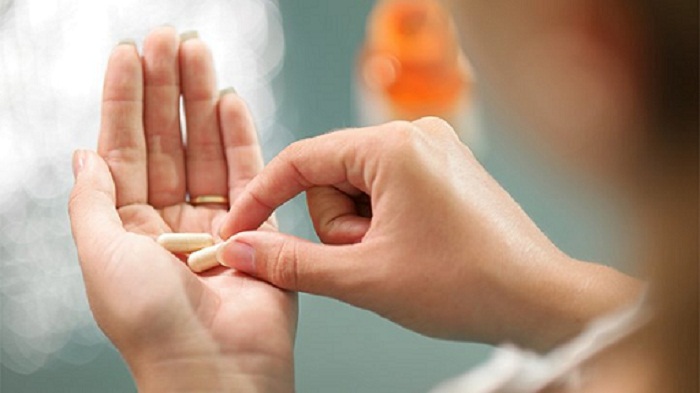What Exactly Are Probiotics?
Probiotics seem all the rage right now, but what exactly are probiotics? If you are considering adding probiotics to your daily regimen or curious as to their health benefits, you might be wondering what are probiotics?
While it can seem somewhat complex – having countless health and unhealthy micro-organism living inside your body – it’s actually quite simple!
Your body is home to trillions of microorganisms that outnumber your body’s cells nearly 10 to one. Eighty percent of these bacteria reside in your gut, and the vast majority of them are quite harmless.
Having the right gut bacteria has been proven to accelerate weight loss, improve digestion, better looking skin, and reduce the risk of numerous diseases.
Probiotics are the strains of healthy bacteria that provide a number of benefits. They help to colonize your gut with health-boosting bacteria and are often taken as probiotic capsules.
Here is everything you need to know about probiotics and their benefits.
Probiotics 101 – Defined
Probiotics aren’t your typical supplement like minerals and vitamins, even if they are found in similar packaging. These are live microorganisms, when ingested provide certain benefits that improves your overall health.
Certain kinds of yeast may also function as probiotics. When probiotics are taken in adequate amounts, they promote healthy digestion, prevent and treat certain illnesses and contribute to a healthier immune system.
Microorganisms and the Human Gut
Your gut is teeming with microorganisms that are unique to your microbiome. A healthy balance among these microbes is critical to a healthy digestive system and a healthier you. Probiotics help in boosting the good bacteria strength that can fight off the harmful pathogens.
Most of the gut flora can be found around the colon and large intestines. Metabolic activity of gut flora resembles the function of any other organ. Many scientists refer to the gut flora as the ‘forgotten organ’.
Your gut flora performs many important functions like manufacturing vitamins, including vitamin K, and most of the B-vitamins.
It also breaks down fibers into short-chain fats like acetate, butyrate, and propionate that feeds your gut wall and helps in performing metabolic functions.
These fats also strengthen your gut wall and stimulate your immune system. This prevents unwanted substances and pathogens from entering your bloodstream and provoking an immune response.
However, all microorganisms are not friendly and your gut flora can get dominated by the unhealthy microbe species by following an unhealthy lifestyle and unsavory dietary habits.
Probiotics and prebiotics can help restore the good balance, ensuring that the ‘forgotten organ’ works optimally.
How Many Probiotics are there?
There is constant research conducted in the area of probiotics. Most probiotic capsules brands have developed or identified particular strains of probiotics that help with different functions.
Largely, there are only two species of bacteria – Lactobacillus and Bifidobacteria that are studied. Some researchers have found benefits of Streptococcus thermophilius as well.
Bacteria species have huge numbers of strains within their genus. Few examples include, Lactobacillus acidophilus, Lactobacillus gasseri, Bifidobacterium breve, Bifidobacterium longum, and so on.
All these strains have individual functions. It is important to identify your particular reasons for having probiotics and choosing probiotic capsules that specifically addresses that need.
Probiotic pills come in the form of capsules, chewable, tablets, powder, liquid drops and probiotic juice or beverages. There are many probiotic enriched foods as well, like yogurt.
These supplements are developed to address different issues, such as colon health, immunity boost, digestive issues, constipation and gas. You can find probiotic pills that are great for the entire family or dedicated supplements for kids, adults, and the elderly.
Who Should Take Probiotics?
Everyone at any age should include probiotics in their diet. It can be beneficial to take probiotics even when you are in the prime of health. The current American diet is highly processed and full of sugars, fats and salt.
This makes it important to constantly provide a helping hand to the good microbes in your gut.
However, probiotics are essentially, bacteria, and not recommended for people with an impaired immune system. You should not include probiotics in the form of probiotic pills or supplements after a prolonged stay at the hospital or after a surgery. You should refrain from probiotics if you have a leaky gut syndrome or are prone to allergic reactions.
What are the benefits of Probiotics?
Probiotics are basically a remedy for gut ailments, but have gained quite the reputation for taming diarrhea. They may even promote healthy tooth and gums and give you a glowing, refreshing, and more youthful looking skin. Here are all the more significant benefits of probiotics:
Digestive Advantage
Strong evidence suggests that probiotics can give users their gut a digestive advantage by preventing traveler’s diarrhea and treat antibiotic induced diarrhea. Probiotics may also help give your gut a digestive advantage by combating the symptoms of irritable bowel syndrome (IBS), which include diarrhea, gas, and bloating.
Some studies note that probiotics may treat irritable bowel diseases, like ulcerative colitis and Crohn’s disease. Initial findings suggest that probiotics can help fight Helicobacter pylori infections that are one of the main driving factors of stomach cancer and ulcer.
Other Benefits
- Weight Loss – Studies suggest that your gut microbiome may have a lot to do with obesity. Normal weight people have different microbiome as compared to overweight people.
- Inflammation – Probiotics reduce inflammation that is a major driving force of many diseases.
- Blood Cholesterol – Several studies have shown that probiotics can help lower LDL cholesterol levels while increasing HDL levels.
- Mental Health – Probiotic strains Bifidobacterium longum and Lactobacillus helveticus have been shown to reduce symptoms of depression and anxiety.
- Immune Function – Several probiotic strains may help reduce risk of infections by enhancing the immune function. Common colds have been most researched to be prevented by probiotic supplements.
- Blood Pressure – Probiotics may help in reducing blood pressure by modest levels.
- Skin Health – Probiotics can be useful for a number of skin issues like rosacea, eczema, and acne among others. To this effect, there are a number of skincare products that are infused with probiotics for topical application.
Probiotics Are Safe
There are no widely known side effects of probiotics. However, you might experience symptoms of constipation, bloating, flatulence, and diarrhea for a few days, after you begin a supplement.
Do not let this deter you because it means that the probiotics are working. This occurs because the harmful bacteria perish in large quantities, releasing toxic gases.
Probiotics may also take some time for all the benefits to manifest themselves. These are not quick fix solutions. Probiotics are a lifestyle change and can help you stay healthy from within. These supplements ensure that your gut is balanced which helps to maintain overall health.




